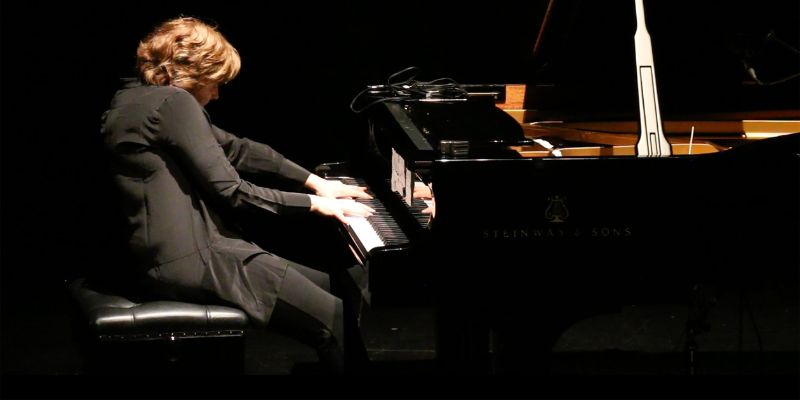
Musical touch and vicarious perception
How does touch form a locus of embodiment in a performer’s interactions with instruments and performance contexts? How might performer touch contribute to the vicarious embodied experience of music for listeners and watchers?
This research project explores the relationship between the significance of touch for musicians and its (often subconscious) impact upon audiences. It combines practice research, including the collaborative development of new performances, with critical-philosophical and empirical approaches, with each research strand feeding into the other. It is a partnership between the University of York and the Orpheus Institute, Ghent, where the work forms part of the OI research cluster, "Performance and Embodiment".
Project overview
Touch is an important aspect of music-making. The nature and extent of the tactility involved in playing a musical instrument varies considerably, according to the bodily contact with and activation of the instrument. Nevertheless, for many performers quite how they touch their instruments – with hands or other body parts – is central to the nuance of performance. It is bound up with the proprioceptive navigation of the nuances of musical sounds: we feel our way around qualities of tone and timbre. Moreover, if a sense of musical selfhood is, at least in part, contingent upon attention to the subtleties of sound quality, and touch is – whether consciously or subconsciously – an important factor in sound production, then musical touch contributes significantly to the creative agency, and identity, of a performer.
This project explores some of the ways in which touch acts as a form of performer knowledge and as a contributing factor in the production of musical agency and subjectivity. How does touch form a locus of embodiment in a performer’s interactions with objects (instruments and beyond), materials and contexts?
The second aspect of this project is concerned with how touch in musical performance is significant for others: how it is experienced vicariously. Recent developments in embodied cognition suggest that we use the same parts of our brain to process observations of other people making movements or touching objects as when we do these things ourselves. This can blur the boundaries between the self and others.
Research shows that, for some people, vicarious perception can cause a first-hand sensation on their own body; for example, a sensation of touch when seeing another person touching an object. We know that watching musical performance, or even simply listening to music, activates motor regions of the brain similarly to if we are ourselves moving. However, little is currently known about the extent to which, when we watch or listen to a musical performance, we vicariously represent, in our own brains, the musician’s touch and its related movements and feelings.
This project explores aspects of the vicarious response to musical touch. How might performer touch contribute to the experience and significance of music for listeners and watchers? Might it form part of our empathic response? Do we, even, embody the actions of the musician performing?
Research methods
The project has three strands:
- artistic research in experimental performance
- an empirical study of vicarious perception of musical touch
- a critical-theoretical strand of investigation drawing on philosophical and phenomenological understandings of touch.
The three strands of research are informed by and informing each other: performance experimentation is feeding into the theoretical investigation and vice versa.
The research is focused primarily on the piano and other keyboard instruments. Performer-researcher Catherine Laws is collaborating with composers and other artists, collaboratively developing new performance pieces that explore and/or expose the significance of touch and its perception. She is also collaborating with a specialist in the psychology of touch and vicarious perception, Natalie Bowling, for the empirical research.
Key collaborators
- Natalie Bowling, psychologist - University of Greenwich, UK
- Teresa Brayshaw, theatre maker, writer and Feldenkrais practitioner - Leeds Beckett University, UK
- Nicholas Brown, Dublin-based composer and sound artist - Orpheus Institute
- Juliana Hodkinson, Berlin-based composer - The Royal Academy of Music, Aarhus, Denmark
- Lynette Quek, independent audio-visual artist - Singapore
Contact us
Federico Reuben
Senior Lecturer
Contemporary practice research cluster lead
Contact us
Federico Reuben
Senior Lecturer
Contemporary practice research cluster lead